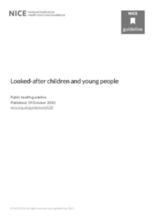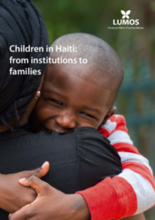Demographic Data
|
Sources: World Bank, UNICEF, UNDP HDR 2015, DHS 2011 |
Displaying 11451 - 11460 of 14389
This report provides an overview of the two-day expert meeting on alternative care and family support in the Baltic Sea Region that took place in Tallinn, Estonia in May 2015.
This background paper was developed as part of a regional study which gathered relevant data and information on family support and alternative care in the eleven Member States of the Council of the Baltic Sea States (CBSS).
Government representatives, experts and professionals from the Baltic Sea Region including Denmark, Estonia, Finland, Germany, Iceland, Latvia, Lithuania, Norway, Poland, the Russian Federation, Sweden and wider Europe gathered at a two-day expert meeting in Tallinn, Estonia and, together, endorsed a set of recommendations and action plan on alternative care and family support on 6 May 2015.
This post from the London School of Economics Volunteer Centre urges people wishing to volunteer with children in Nepal in response to the recent earthquake to think first about their impact. The post shares several resources on orphanage volunteering, including links to Next Generation Nepal, Orphanages.no, The Better Care Network, Learning Service and UNICEF Nepal as well as a video on orphanage volunteering.
This episode of BBC Newshour highlights the issue of children living in institutions in Nepal, both before and after the earthquake.
This post from World Vision tells the story of one mother in Nepal who was approached by strangers after the recent earthquake asking to adopt her children. The story highlights the increased dangers faced by children and families, especially those most vulnerable, after a natural disaster.
The purpose of this research was to capture more accurate and detailed information regarding children in various forms of alternative care in Thailand.
The purpose of this research was to capture more accurate and detailed information regarding children in various forms of alternative care in Thailand, as well as the legal, policy, management and oversight environment surrounding them in order to plan and programme more strategically in the area of alternative care, and simultaneously contribute to the global evidence base for international findings and recommendations on alternative care.
This guideline covers how organisations, professionals and carers can work together to deliver high quality care, stable placements and nurturing relationships for looked-after children and young people in England.
This report, first distributed at the seminar co-hosted by Lumos and USAID on the challenge of institutionalization in Haiti, provides some background information on the effects of institutionalisation as well as the particular situation in Haiti.







